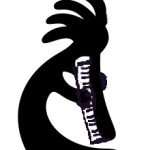What role does the melodica take in your group?
Tagged: role in a band
- This topic has 7 replies, 5 voices, and was last updated 8 years, 4 months ago by
 Lowboy.
Lowboy.
-
AuthorPosts
-
December 17, 2015 at 6:34 pm #6581
 KevinParticipant
KevinParticipantLowboy’s recent post mentioning moving from a trio to an octet/nonet and how he approached his parts got me thinking this would be a good discussion.
For those of us who have or do play the melodica in a group setting what sort of role does it take?
Are you mainly a keyboard player who just uses the melodica for certain solos?
Do you use it as a lead instrument or do you play comping and chords behind the other players?
Is it used on every song as a fundamental part of your sound or just occasionally?
Or any other ways you incorporate a melodica into a band setting?December 17, 2015 at 11:51 pm #6583Binyomin
ParticipantI lead a band, the Breslov Bar Band, where the vibrandoneon is a key component of the band’s sound, and very much influences the arrangements I write for the group.
The instrumentation is, in addition to my vibrandoneon/keyboard/vocals consists of a clarinetist (Bb and bass clarinet), a baritone sax, electric guitar, electric bass, and drums.
There are demo clips on the band’s site, but I’d highlight one track here, as an example of how I might use the instrument for melody playing (the head is played every other time through the tune), comping (behind the solos), and improvising. Incidentally, this track is from before we added the bari sax player to the band.
December 20, 2015 at 12:35 am #6588 DarenKeymaster
DarenKeymasterWow, Binyomin. Amazing!!
I use it in Irish music to play tunes, solo with guitar backing, and with other lead instruments. Sometimes use it for a bit of comping. I used to play piano, but now only melodica!
December 20, 2015 at 10:51 am #6594 LowboyParticipant
LowboyParticipantBinyomin, great composition and playing by your band. I just connected with you on SoundCloud. I will listen to more of you tunes later today.
Lowboy
December 20, 2015 at 11:20 am #6595 LowboyParticipant
LowboyParticipantHi,
I played with my trio yesterday at a winery in the afternoon and thought I would clarify my statement of the “melodica being too much in a trio setting for two or three sets of music.”
I guess you could say that about any instrument.
Is a solo guitarist too much to listen too for two or three sets of music? How about the same singer fronting a small band all night? Can you listen to Vivaldi for three hours– I can 🙂 –without feeling like you might want a change of pace?
I think in the case of the melodica, it is important not to overplay in a trio setting. It is often said that what you don’t play is just as important as what you do play. Getting a really nice sound also helps. Whether your preferred sound is round and smooth or trebly or brash, use EQ to make it sound appealing and fit the soundscape and room acoustics. And finally, you must play well, offering tasty deep background, solos, and counterpoint to the music.
If you do the above, you have the best chances of not burning the audience out on the melodica sound.
The role I play in many songs in my trio is responding to the singer and providing fills between her singing. Basically I am the “response” in the call and response style that we have. Often, I will wait one or two verses before I even start playing. I almost always try to play lower in the mix than the guitarist except when soloing.
Lowboy
December 21, 2015 at 5:37 am #6596Binyomin
ParticipantThanks for the kind words, Daren and Lowboy!
December 21, 2015 at 5:48 pm #6597 Jerry BallardParticipant
Jerry BallardParticipantI almost always try to play lower in the mix than the guitarist except when soloing.
Well, most of the time that’s not too hard, is it? 🙂
December 25, 2015 at 12:07 pm #6608 LowboyParticipant
LowboyParticipantHi Jerry,
Actually in my acoustic trio, it is sometimes hard to play softer than the guitarist while making the melodica fully expressive. We mostly play acoustic music at small venues or to small crowds. The acoustic guitarist and vocalist use sound reinforcement at the these gigs, and I still have difficulties achieving a reasonable dynamic range without sounding too loud (for I too use sound reinforcement and want to hear my delay and compressor working). That is how soft they (we) play sometimes.
Playing without sound reinforcement (fully acoustically), I can overpower the acoustic guitarist pretty easily and be the dominate instrument in the mix.
When we rehearse, I keep telling my group to turn up to stage volume, otherwise I have to play so soft that my instrument does not sound right. I lose control of the sound (notes do not sound, no dynamic range, can’t hear effects, can’t sustain an even amplitude when holding long notes).
On several occasions we played restaurant lounges, and 60 to 80 people drinking and talking would overpower the group. The guitarist and vocalist turned up their amps, and I did too. In those instances, I did have a hard time being loud enough.
Regards,
Lowboy
-
AuthorPosts
- You must be logged in to reply to this topic.
